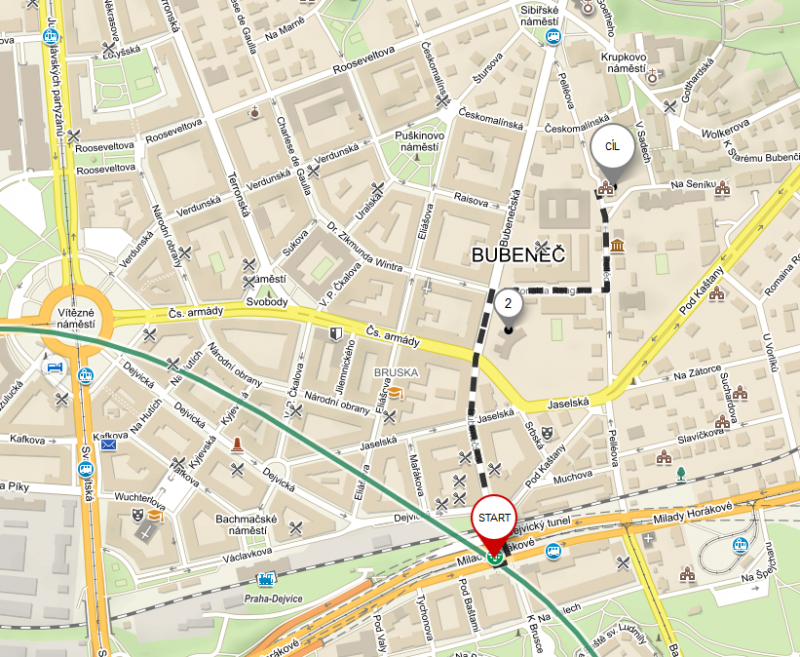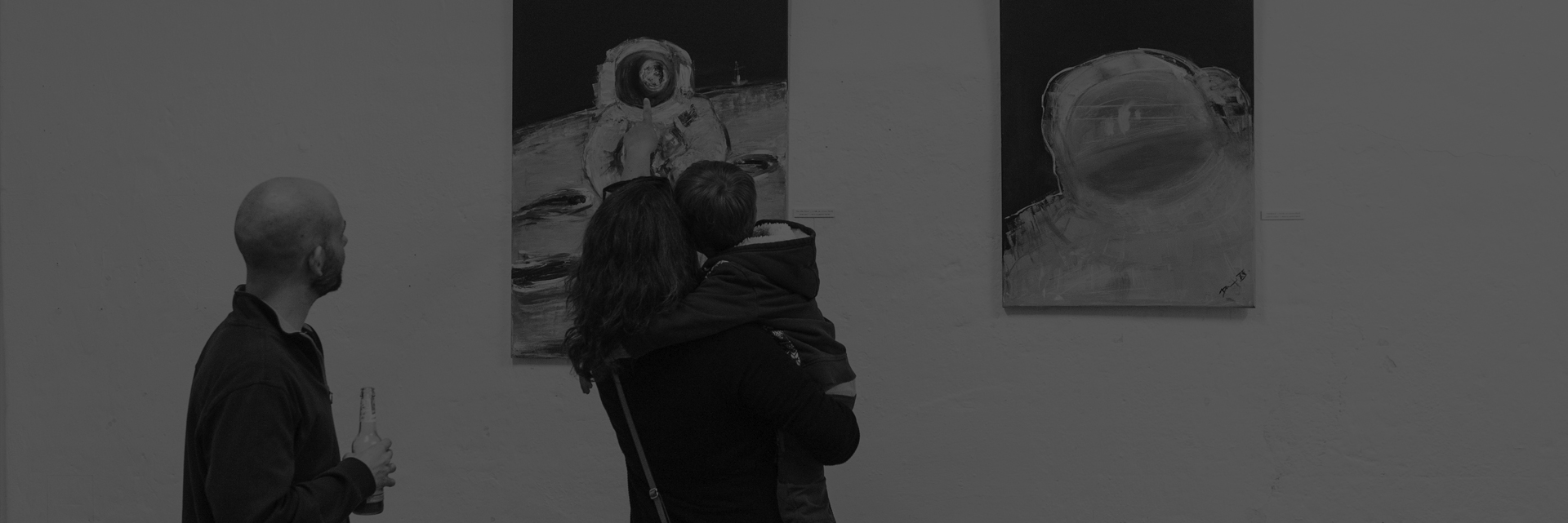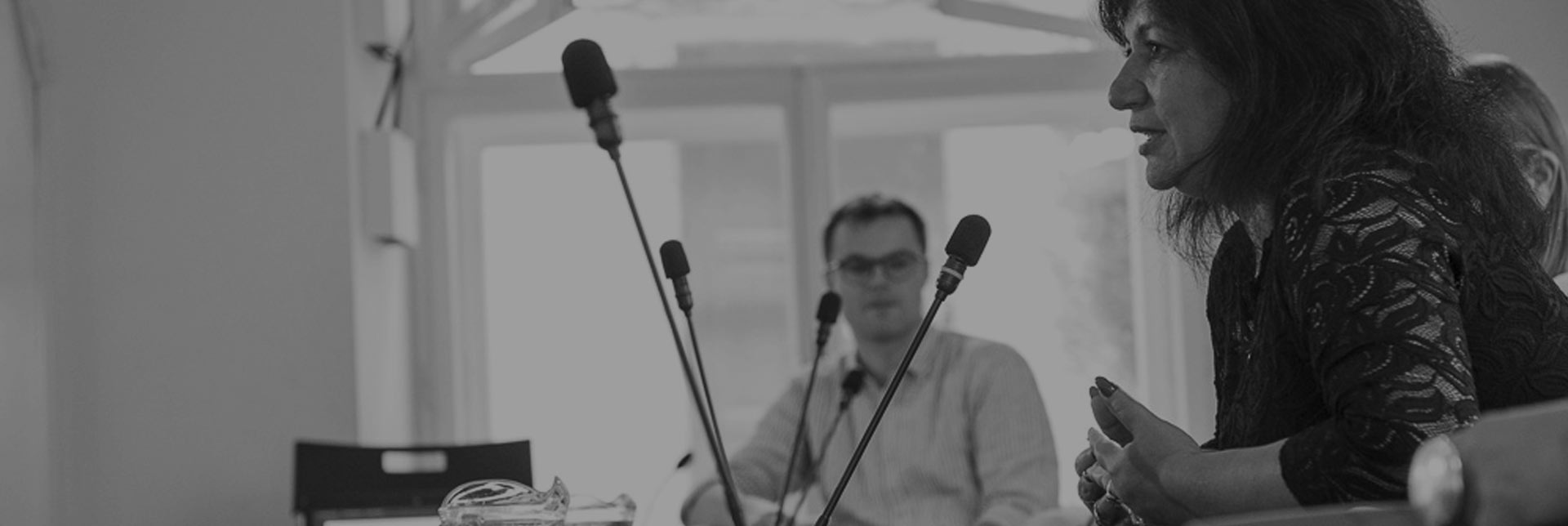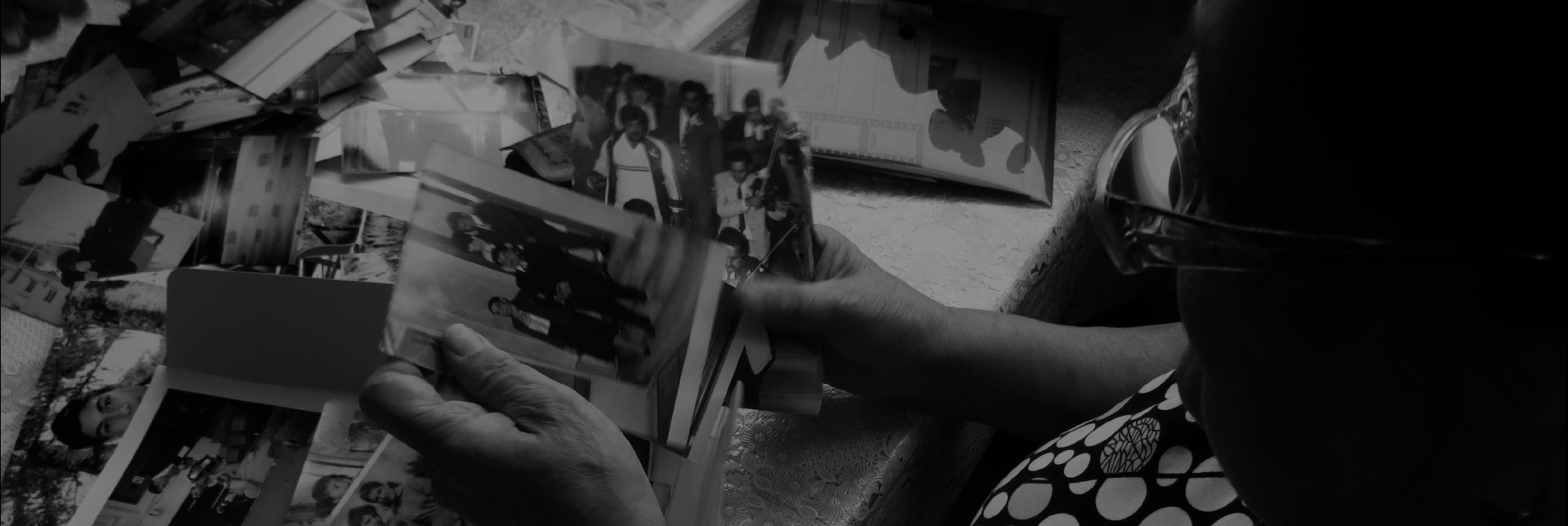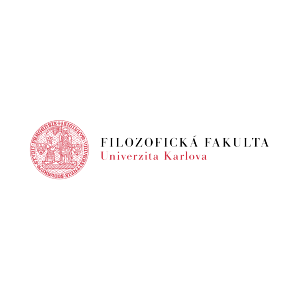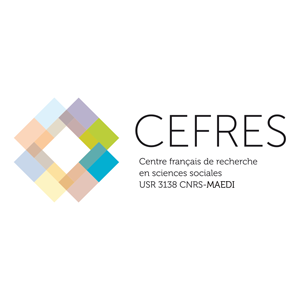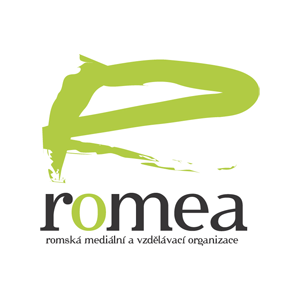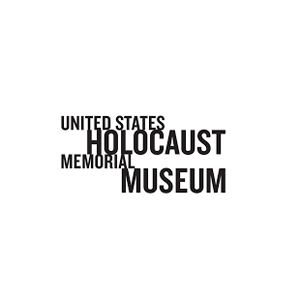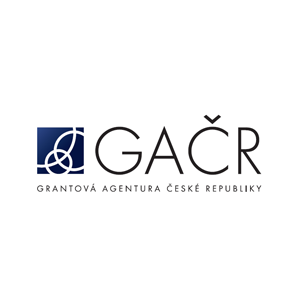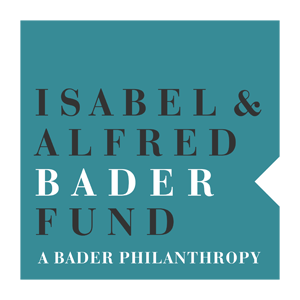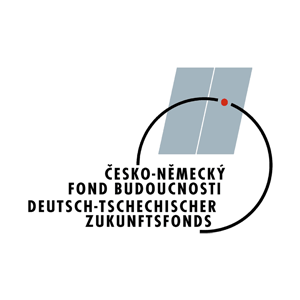Tracing the Legacies of the Roma Genocide. Families as Transmitters of Experience and Memory
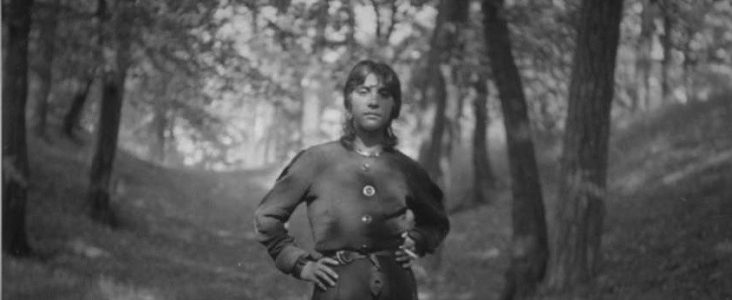
University of Liverpool Library
20-21 September 2017, Prague
The conference is a joint event bringing together two recent academic initiatives focusing on the research on the history of the Roma and supporting new approaches in the field: the Prague Forum for Romani Histories and the Research network on ‘Legacies of the Roma Genocide in Europe since 1945’, which is funded by the Arts & Humanities Research Council (AHRC, United Kingdom). Both initiatives aim at fostering a debate on the history of Roma as part of European history and contemporary European society.
The AHRC-funded Research network on ‘Legacies of the Roma Genocide in Europe since 1945’ is an international group of historians, social scientists, and scholars of language and culture, working with representatives of Romani communities to explore how the genocidal policies pursued in Europe between the mid-1930s and 1945 have shaped the social, political, and cultural history of Roma since 1945. It is led by Celia Donert and Eve Rosenhaft at the University of Liverpool in partnership with the MigRom project at the University of Manchester and the Romani Studies Seminar, Charles University, Prague. The conference is closely linked to its other activities planned for 2017 (workshops for researchers on conceptual approaches and state practices, as well as other events for the general public).
The Prague Forum for Romani Histories is an international academic initiative to promote interdisciplinary, intersectional, and transnational scholarship and dialogue on the study of the Roma as an integral part of European societies and an integral component of the historic research in and of Europe. Supporting methodological approaches that concentrate on processes of social differentiation and acknowledging the problematic role of disciplinary knowledge in reifying unequal power relations, the Forum seeks to contribute to decentring hegemonic national and identity-based narratives in European history. By doing so it seeks to promote reflexive, self-critical work which foregrounds Roma as historical co-actors, without downplaying discrimination and persecution histories. The Forum is institutionally based at the Institute of Contemporary History of the Czech Academy of Sciences, Prague. The partners in establishing the Forum are CEFRES, Prague, and the Seminar of Romani Studies (Department of Central European Studies, Facult y of Arts) at Charles University, Prague. The planned conference is the inaugural event of the Forum.
Understanding the genocide of the Roma during World War II seems crucial for understanding the post-war history of Romani families and communities across Europe. At least 130,000 Roma were killed as a direct result of racial policies pursued by the German state, its allies, and other European states between 1933 and 1945. Some activists and scholars claim that as many as half a million Roma were killed. Yet although the mechanisms and scope of the Roma Holocaust are now partly understood, the legacies of mass killing, ghettoization, sterilization, and slave labour for first-, second- and third-generation survivors are still unknown. It appears likely, however, that understanding the trauma of the mid-twentieth-century genocide, as well as its contested recognition by majority societies, is of paramount importance for understanding the persistent discrimination against European Roma today.
The purpose of the conference is accordingly to map current research and guide a developing research agenda, investigating the ways in which past experiences and memories of persecution and violence have influenced family histories, political and social identities, and state-society relations amongst the Roma in different parts of Europe since 1945. Such investigations necessarily have a broad geographical focus, going beyond the more familiar sites of memory like the Auschwitz Gypsy camp to consider topics such as the legacies of the wartime deportation of Romanian Roma to Transnistria. We also welcome critical longer-term approaches to periodization, which might shed light on the specificity (or otherwise) of the events that took place between the mid-1930s and 1945. Our hope is thus to promote much-needed comparative and transnational perspectives on the history of Roma in post-war Europe, and also to connect scholarship in the field of Romani Studies to broader debates about the legacies of genocide in contemporary European history.
We invite papers from scholars in all disciplines, including historians, ethnographers, and cultural studies scholars, and particularly welcome cross-disciplinary, comparative, and transnational approaches. Our aim is not to reify an image of the Roma as homogeneous victims of genocide. Rather, we invite contributions that explore and contest narratives of victimhood, for example, by investigating the various ways in which individuals and families have responded to the experience of discrimination in everyday life, interactions with public authorities, politics, economic activities, or activism.
Papers might explore the following questions:
- How might we search for the traces of genocide in the subjective and material experiences of Romani families since the end of the Second World War?
- How can scholars trace and narrate the legacies of the Roma genocide within families of first-, second- and third-generation survivors?
- To what extent can we compare the memories of persecution amongst Roma in different places, and in different migration contexts and with other population groups?
- To what extent have continuities in discriminatory practices within local and national welfare agencies, police, health and education authorities in post-1945 Europe influenced experiences and memories of persecution among Roma communities and families?
- In the light of an emerging agenda of memorialization among Roma advocacy groups, how can we contribute to contextualizing policies and practices of commemoration and memorialization in different local, national, and transnational sites since 1945?
- How has the legacy of genocide shaped the political construction of Romani identities, for example, through social activism or political movements?
- What are the ethical and political dilemmas for historians who seek to explore these histories of trauma and violence?
20 SEPTEMBER 2017
13:30
Opening of the conference
Celia Donert and Eve Rosenhaft
13:45-15:45
Panel I: Families as Transmitters of Experience and Memory
Chair: Kateřina Čapková
Volha Bartash (Hugo Valentin Centre, University of Uppsala): The Holocaust in Three Generations? Transmitting Memories and Communicating Trauma in Romani Families in Belarus and Lithuania
Hanna Abakunova (University of Sheffield): Memories of Persecution of Roma in Ukraine during the Second World War: Roma vs. non-Roma Perspectives.
Lada Viková (Faculty of Humanities, Charles University): ‘Not being others’ and ‘Forgetting the Auschwitz Trauma’ as two chosen strategies in the postwar history of a Czech-Moravian Roma family.
Slawomir Kapralski (Pedagogical University of Cracow): Roma Family as an Ambiguous Frame of Memory
15:45-16:15 coffee break
16:30 transfer to Václav Havel Library
17:30-18:00
Exhibition opening
Eve Rosenhaft (Liverpool University), Jana Müller (Alternatives Jugendzentrum e.V. Dessau)
Exhibition title:
“…don’t forget the photos, it’s very important…” The National Socialist Persecution of Central German Sinti and Roma
“…vergiss die Photos nicht, das ist sehr wichtig…” Die Verfolgung mitteldeutscher Sinti und Roma im Nationalsozialismus
18:00-19:00
Discussion with Members of German and Czech Holocaust Survivor Families
Chair: Jana Horváthová (Museum of Romani Culture)
21 SEPTEMBER 2017
9:00-10:45
Panel II: Memory, Family Histories, and the State
Chair: Yasar Abu Ghosh (Faculty of Humanities, Charles University)
Ari Joskowicz (Vanderbilt University): Judicial Testimony and Communal Memory: Pretrial Interviews with Romani Survivors in the Frankfurt Auschwitz Trials
Petre Matei (Elie Wiesel National Institute for the Study of the Holocaust in Romania, Bucharest): Roma in Romania and their Memories of the Holocaust – a Complicated Interplay between Survivors, Families, Activists and State
Eszter Varsa (Leibniz-Institute for East and Southeast European Studies, University in Regensburg): Child protection authorities’ perception of Romani and non-Romani families in early state socialist Hungary
10:45-11:15 coffee break
11:15-13:00
Panel III: The Destruction and Reconstruction of Community: Family Narratives
Chair: Ilsen About (EHESS, Paris)
Viorel Achim (Nicolae Iorga Institute of History, Romanian Academy of Sciences, Bucharest): Roma deported to Transnistria speaking about their suffering in several petitions from 1943-44
Grégoire Cousin (Fondation Maison des Sciences de l’Homme): Creating a community, sharing a history: Family narratives of Bessarabian Roma in France and Romania.
Helena Sadílková / Milada Závodská (Museum of Roma Culture, Brno): “After the liberation from the camp I returned to my country” (Leon Růžička). Two written testimonies (1958, 1980) by Romani Holocaust Survivors in Communist Czechoslovakia: Asserting a presence outside the private sphere.
13:00-14:00 Lunch break
14-15:45
Panel IV: Private Memories and Commemorative Cultures
Chair: Krista Hegburg (USHMM, Washington)
Dušan Slačka (Museum of Roma Culture, Brno): Circumstances of Creation of Miroslav Bárta’s Short Documentary Motion Picture Nezapomeňte na tohle děvčátko (Don’t forget this little girl).
Jana Horváthová (Museum of Roma Culture, Brno): Genesis of Research, Documentation and Commemoration of the Roma Holocaust before and after the Establishment of the Museum of Romani Culture
Anne Klein (University of Cologne)/ Thorsten Fehlberg (Bundesverband Information & Beratung für NS-Verfolgte e. V.): Who speaks? Tracing the transmittance of the Roma Genocide in private memory and commemorative culture
15:45-16:30 Coffee break
16:30-18:00
Roundtable discussion
Chair: Celia Donert
Participants:
Tara Zahra (University of Chicago)
Iulius Rostas (CEU, Budapest)
Ari Joskowicz (Vanderblit University)
Jan Grill (Universidad del Valle, Cali)
Čeněk Růžička (Committee for the Reparation of Romani Victims of the Holocaust, Czech Republic)
The conference is organized by the AHRC research network on ‘Legacies of the Roma Genocide in Europe since 1945’ and The Prague Forum for Romani Histories based on the Institute of Contemporary History, Czech Academy of Sciences
in partnership with Seminar of Romani Studies at Charles University, Alternatives Jugendzentrum in Dessau, CEFRES and New York University in Prague
Organizers:
Celia Donert (University of Liverpool)
Eve Rosenhaft (University of Liverpool)
Helena Sadílková (Charles University, Prague)
Kateřina Čapková (Institute of Contemporary History, Prague)
The conference takes place in Villa Lanna, participants will be accommodated there.
V Sadech 1
Prague 6
phone: +420 224 321 278
How to get there
From the airport
At the bus stop for the 119 bus, just outside the airport front doors, buy a 32-crown ticket from the yellow-orange ticket machine; it will cover for 90 minutes of travel by bus, tram, and Metro (underground) in Prague. Take the 119 bus to the Nádraží Veleslavín Metro station, then go down the stairs to the Metro, and travel to the station Hradčanská. Villa Lanna is a ten-minute from the Hradčanská station (see below).
From the train or the coach station
Trains arrive at Prague Main Station (Praha Hlavní nádraží). From a yellow-orange ticket machine, buy a basic ticket for 32 crowns for 90 minutes of travel by all means of transport in Prague.
Enter the Metro directly at the train station, travel one station to Muzeum, and change onto the green line, which will take you to Hradčanská (the last stop before the Dejvice terminus). If travelling by coach, the Florenc bus station has its own Metro station: get onto the red line and change at Muzeum for the green line to Hradčanská. Villa Lanna is a ten-minute from the Hradčanská station (see below).
The ten-minute walk from Hradčanská station to Villa Lanna
Head for the ‘Bubenečská’ exit, walk straight down Bubenečská Street. At Ronald Reagan Street, with the US Ambassador’s residence on the corner, turn right. At the end of the street, turn left into Pelléova Street. At the end of this street, you’ll see Villa Lanna.
For further tram and Metro information, including timetables and trip planning, visit the Prague Public Transport website .
